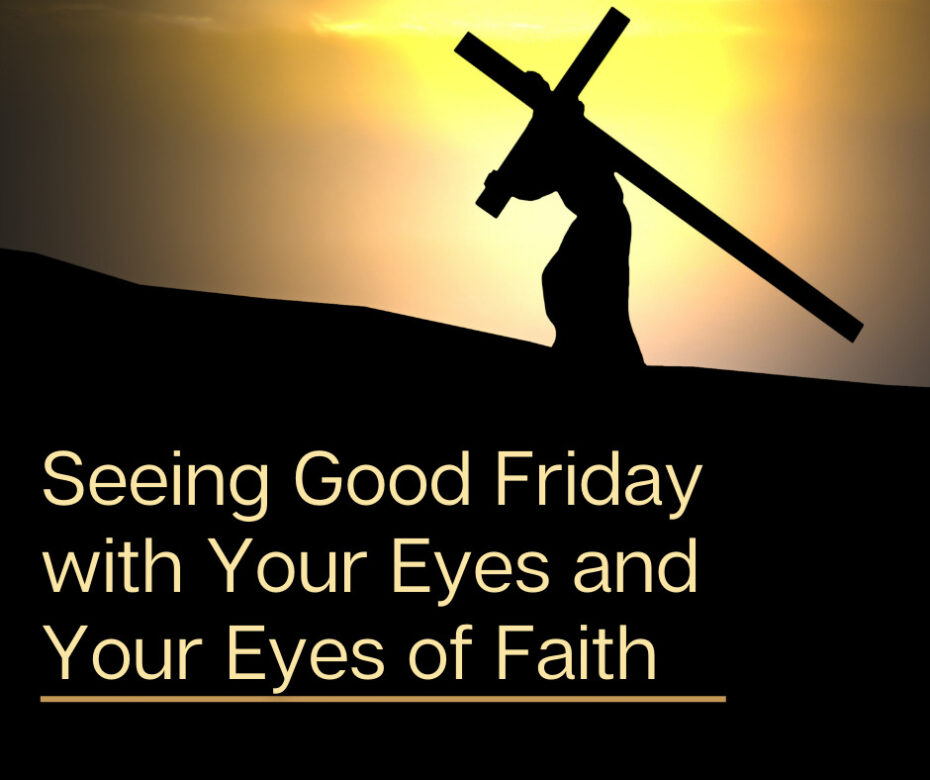If you had witnessed the Romans crucify Jesus, you would not have known the significance of what you saw.
You would have seen a Jewish man, among several other men, being beaten, bruised, bloodied, and nailed to some wood by the despised Romans.
You would have seen yet another criminal executed for His crimes. You could not tell whether He was really guilty or not, just by looking.
Seeing His nail-pierced hands and feet would make you squirm in sympathy and be glad that you were not the one hanging up there. But sympathy aside, you would not have seen anything of religious significance in the scene before you. There was no temple, altar, incense, or sacrificial animal; fanfare, pageantry, or choral music; nothing about the scene would suggest anything of outward theological value.
However, you might have noticed a sign.
For some reason, the Romans nailed a placard over one Man’s head that read, “King of the Jews.” That’s odd. What does that mean?
You would also have heard the crowds murmuring, with some people taunting the dying men, especially the Man with the sign, whose name was Jesus. You would have seen the chief priests surround Him and say nasty things to Him, such as mocking Him for getting himself crucified and challenging Him to get down and save Himself.
What you saw and heard might strike you as tragic—but not particularly important.
And then, after the hours passed, you would hear that one Man cry out, “Eli, Eli, lema sabachthani?” that is, “My God, my God, why have you forsaken me?” (Matt 27:46). You would probably feel the same way, hanging up there.
And yet…
…and yet those words might jog your memory. Haven’t you heard them before? But where?
And then you might remember. It was in synagogue!
Yes, you’re sure of it. Those are the opening words of David’s Psalm:
My God, My God, why have You forsaken Me?
Why are You so far from helping Me,
And from the words of My groaning?
O My God, I cry in the daytime, but You do not hear;
And in the night season, and am not silent (Ps 22:1-2).
Crying out to God in despair is understandable, but why quote a Psalm to do it? How does the rest of it go?
But I am a worm, and no man;
A reproach of men, and despised by the people.
All those who see Me ridicule Me;
They shoot out the lip, they shake the head, saying,
“He trusted in the Lord, let Him rescue Him;
Let Him deliver Him, since He delights in Him!” (Ps 22:6-8).
Well, that certainly fits what you’re seeing. This Man Jesus is certainly despised and ridiculed. In fact, that’s almost exactly what you heard the chief priests say to Him about being rescued. What a coincidence!
You might remember the Psalm goes on—
“For dogs have surrounded Me;
The congregation of the wicked has enclosed Me.
They pierced My hands and My feet” (Ps 22:16).
Wait a minute. “Pierced My hands and My feet?” Why that’s just what you see in front of you. The Romans hammered nails into this Man’s hands and feet. Could that be another coincidence?
But then you might think to yourself that while David wrote this Psalm, he was never pierced like that. He never experienced what he wrote about. Who, then, was that Psalm about?
“They divide My garments among them,
And for My clothing they cast lots” (Ps 22:18).
Did they divide His garments? Now that you think about it, you did see the Romans divvying up the Man’s goods. You saw it done with your own eyes.
What is happening? Is Psalm 22…a prophecy? You might remember that is what the Rabbis said. This is a prophecy of Messiah.
At that point, you might think about other Messianic prophecies, such as Messiah being pierced and crushed for our transgressions (Isa 53:5), or how Messiah the Prince would be be killed (Dan 9:26). Maybe your eyes would go back to the sign having above that one Man’s head, “King of the Jews.” “King” as in “Messiah”?
And as you tried to remember what else was in Psalm 22, you would realize that what began with a cry of despair ends with a shout of victory:
All the ends of the world
Shall remember and turn to the Lord,
And all the families of the nations
Shall worship before You.
For the kingdom is the Lord’s,
And He rules over the nations (Ps 22:27-28).
Suddenly, the scene before you might look different—very different. You might realize this was no ordinary execution but an event that the prophets looked to and foretold would happen.
Sometimes you can’t see what’s right before your eyes and you need someone to tell you what you’re looking at.
When Jesus cried out to God using the words of Psalm 22, He was really saying, “Look again.”


